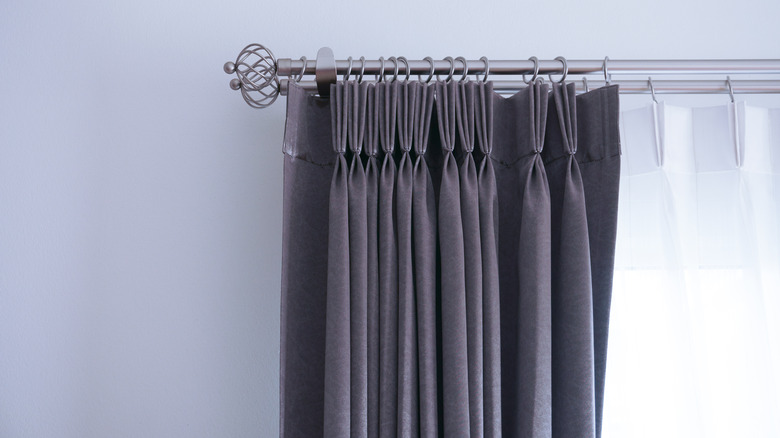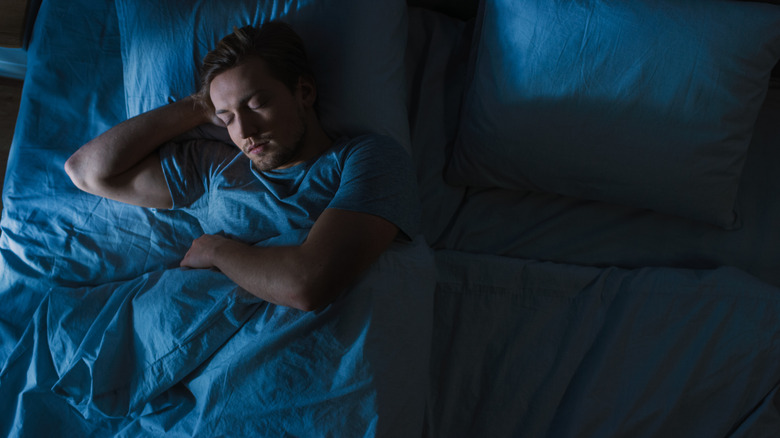What Happens To Your Body When You Sleep With Blackout Curtains
If you struggle to get to sleep at night, the light in your room could be to blame. Blackout curtains — those heavyweight curtains that block sunlight from streaming in your windows in the morning and keep streetlights from lighting up your room as you're trying to get to sleep — can make a major impact on your ability to sleep soundly through the night.
Light doesn't just keep you up at night because it's annoying, it actually influences your body's chemistry. Darkness helps your body produce the hormone melatonin, which helps maintain your circadian rhythm and stay asleep (via Trihealth.com).
"Light interferes with its [melatonin's] production, making it harder to fall into a deep, restful sleep," Samuel L. Krachman, director of the Sleep Disorders Center at Temple University Hospital, told Health. And if your Circadian rhythm is out of whack thanks to a lot of light in your room, your sleep won't be as deep or as regular. Blackout blinds help create that stable dark environment primed for optimal sleep.
Are there any down sides to blackout curtains?
Blackout curtains only help block external light — it's up to you to keep your room dark otherwise, which means shutting down devices and dimming lights to get ready for bed. A great blackout blind won't be helpful if you're scrolling Instagram on a brightly lit phone minutes before trying to go to sleep. Because of this, the Sleep Foundation recommends switching to a dim, low-power bedside lamp at night, and keeping electronics out of the bedroom entirely.
Remember when you do wake up in the morning in your dark room, you might still feel like hitting the snooze button, thanks to the cozy atmosphere that blackout blinds create. Because of this, it's important to make sure that when you do wake up, you open the blinds and get some sunlight (or use a sunlight-emulating light for your alarm clock) to tell your body that it's time to get up and start the day (via Wired).


